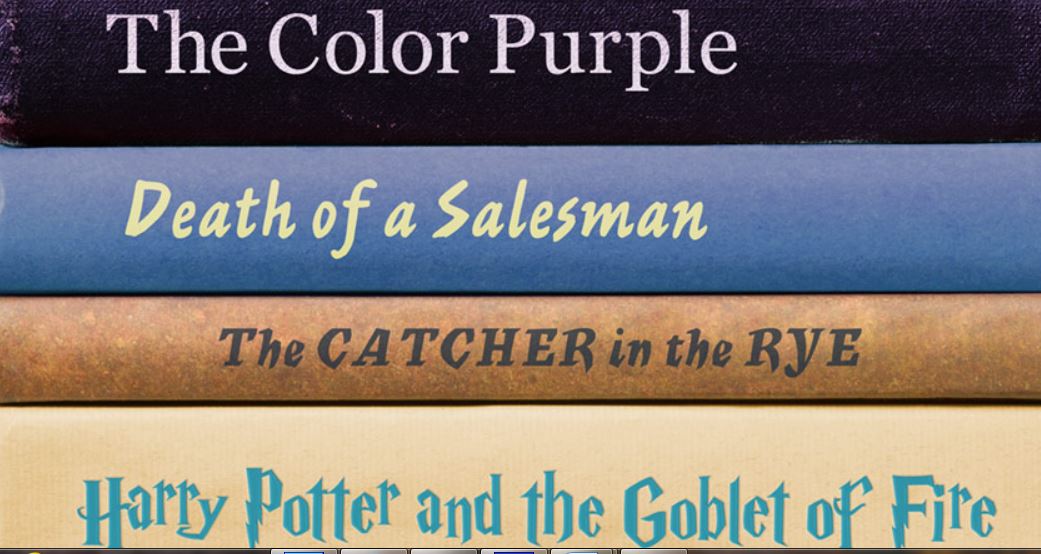What does "Captain Underpants" have in common with James Joyce's "Ulysses"?
While Dav Pilkey's superhero series about two fourth-graders is unlikely to rouse much interest among Joyce fans, it deserves special mention in the fight against censorship for topping the list of the most challenged titles of 2013.
Banned Books Week, the annual end of September "celebration of the freedom to read," brings to light the fact that around 11,300 books have been similarly challenged since a consortium of literary-minded sponsors established the event in 1982. Challenges are defined as attempts to remove the title from libraries or schools, and in 2013, 307 were reported to the American Library Association's (ALA) Office of Intellectual Freedom.
According to the ALA, at least 46 of the Radcliffe Publishing Course's top 100 novels of the 20th century have been the targets of ban attempts. As the National Coalition Against Censorship's Joan E. Bertin says:
Turns out, there's a cottage industry that fuels this anxiety. The best-known example is Common Sense Media, which rates books for sex, violence, language (profanity, racial and sexual references), drinking, drugs and smoking, and consumerism on a scale of 1-5 (as well as purporting to rate educational value, positive messages, and positive role models). The focus on discrete elements of a work of fiction, rather than the whole, yields some peculiar results.
"For example, Kenneth Grahame's children's classic, "Wind in the Willows," has enchanted generations of children and adults since its first publication in 1908, but CSM flags its "violence & scariness" ("There's a fight that pits Toad against the ferrets and weasels. A ferret shoots at Toad, Rat puts pistols in his belt, and Otter cuffs a rabbit."). Another children's classic, "Curious George," gets 3 marks for violence and scariness, along with the warning that "some kids may be a little troubled by George's sad expression when he's whisked away from home." Isn't that the point?
We asked some of Truthdig's book reviewers to tell us about their favorite banned books:
Tim Riley: "The Great Gatsby," "The Grapes of Wrath," "Catcher in the Rye": Looking over the American Library Association's list of frequently banned books can make you squirrelly. How can so many people have been so wrong about so many bona fide MUST-reads? "Huckleberry Finn," "Lolita," "To Kill a Mockingbird": It's almost as if our entire American canon, the works that most broadened and enlightened our identity, falls into the voodoo category. "Invisible Man," "Beloved," "The Satanic Verses": The hits just keep on coming.
Paul Von Blum: My best memory involves Henry Miller's "Tropic of Cancer," published in the U.S. by Grove Press. As an undergraduate in San Diego in the early 1960s, I went with a delegation from the ACLU to the office of San Diego Police Chief Elmer Jansen. We had heard that the police department was about to arrest booksellers who dared to sell "Tropic of Cancer." In the meeting, Chief Jansen assured us that this was not so. Reassured that the First Amendment was secure, we left the meeting. Shortly thereafter, the San Diego police actually arrested a local bookseller for selling this book.
For me, this was extremely instructive. It alerted me to the dangers of censorship, a continuing problem in the U.S. and throughout the world. And it made me suspicious of the truthfulness of various police officials, an attitude I retain a half century later.
Ruth Rosen: My favorite is "The Kite Runner" by Khaled Hosseini because it evoked the joy and pain of growing up in Afghanistan and how ethnic differences changed boys' lives.
More about Banned Books Week
In its Banned Books Week Handbook, the sponsoring group states:
"Censorship is about more than a single book. It is about the intellectual, cultural and political life of the community and the people in it.
Each time a book is removed, it reinforces the idea that books and ideas are off-limits if someone doesn't like them. It contributes to a culture where it's better to hide from controversial or difficult topics, than to acknowledge or discuss them. Restricting or banning a book hurts kids and education, because teachers and librarians may decide not to teach or buy another similar book, even if they feel it would be educational or enjoyable"
Events are also taking place across the nation http://www.bannedbooksweek.org/events until September 27, including "virtual read-outs" of challenged books.
As a tribute to open access to information, be sure to check out the Library of Congress' Banned Books That Shaped America.
The ACLU put together a fun (and sad?) infographic filled with information about some of the best banned books:
Hover over each book below to learn a bit about its history.
[Originally from Belfast, Northern Ireland, Róisín Davis is a journalist and researcher. She has a background in social research and community work and an MA in Economic History from the University of Barcelona. She is based in Los Angeles where she is enrolled in UCLA's Journalism program.]



Spread the word